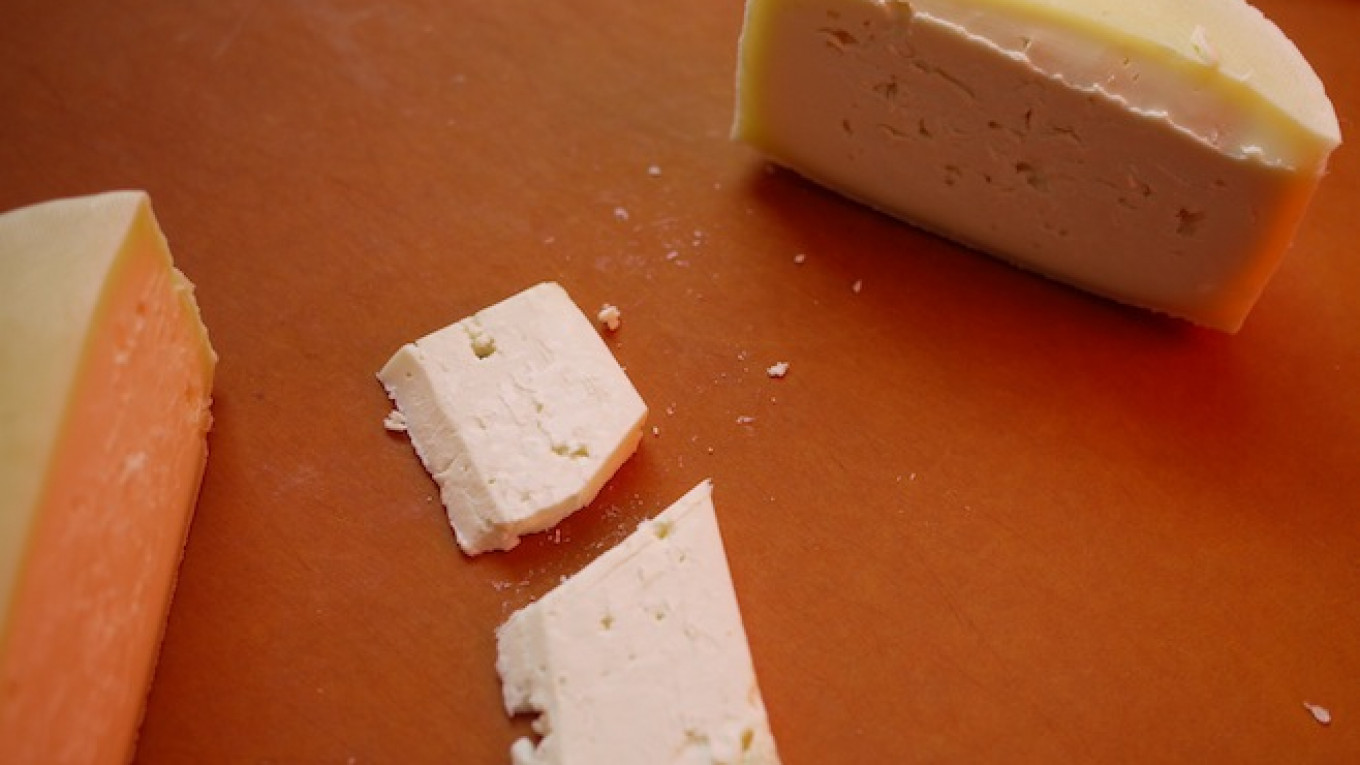Police officers have uncovered a vast illegal factory in the Moscow region that was making cheese using products that are banned from being imported into Russia over the Ukraine crisis, police said in a statement Tuesday.
The organized crime group, consisting of at least two organizers and four active members, was repackaging cheese rennet casein — obtained by curdling milk with the enzyme rennet — and labeling it as a product “of leading natural cheese producers of the world,” the statement said.
President Vladimir Putin signed a decree a year ago banning imports of most agricultural produce from countries that imposed sanctions against Moscow over the Ukraine crisis.
Since then, Russia has been struggling to make the food ban effective. At the end of July, Putin ordered the destruction of all banned food items discovered by customs officers. As of Monday, 321 tons of animal products had been seized, of which 48 tons were destroyed, the agricultural watchdog agency Rosselkhoznadzor said in a statement.
Two organizers and four active members of the group running the illegal factory were detained by police. If charged and convicted, they face up to 10 years in prison and a fine of up to 1 million rubles ($15,000).
Since March, the organized group had supplied large supermarkets in Moscow, the surrounding Moscow region and St. Petersburg with 2 billion rubles ($30.5 million) worth of illegal products, the police statement said.
The factory was relabeling the rennet casein produced in Iran and Turkey as Dutch Maasdam allegedly produced by a factory in Russia's Krasnodar region, or as other popular international cheese labels, Kommersant newspaper reported on Tuesday.
Police officers conducted 17 searches in the warehouses, offices and apartments used by the group and found 470 tons of the rennet, as well as equipment for printing fake labels, the statement said.
In another attempt to crack down on the smuggling that has proliferated since the food import ban was imposed, the Prosecutor General's Office said Tuesday it was launching a hotline for people to report cases of illegally imported food.
“Unscrupulous traders are importing these products without subjecting them to any quality control or adhering to transport and storage conditions, which could endanger people's health,” prosecutors said in an online statement. “To prevent mass violations of people's rights, The Prosecutor General's Office has set up a hotline.”
A day earlier, three State Duma deputies from the nationalist LDPR party introduced a bill that would take the food import ban a step further, and make it a crime to sell those products in Russian stores, as well as to import them, according to the parliament's website.
In their statement on the bill, the deputies argued that a sale ban is needed to enhance Russia's national security.
Elizaveta Vereykina contributed to this report.
Contact the author at [email protected]
A Message from The Moscow Times:
Dear readers,
We are facing unprecedented challenges. Russia's Prosecutor General's Office has designated The Moscow Times as an "undesirable" organization, criminalizing our work and putting our staff at risk of prosecution. This follows our earlier unjust labeling as a "foreign agent."
These actions are direct attempts to silence independent journalism in Russia. The authorities claim our work "discredits the decisions of the Russian leadership." We see things differently: we strive to provide accurate, unbiased reporting on Russia.
We, the journalists of The Moscow Times, refuse to be silenced. But to continue our work, we need your help.
Your support, no matter how small, makes a world of difference. If you can, please support us monthly starting from just $2. It's quick to set up, and every contribution makes a significant impact.
By supporting The Moscow Times, you're defending open, independent journalism in the face of repression. Thank you for standing with us.
Remind me later.






